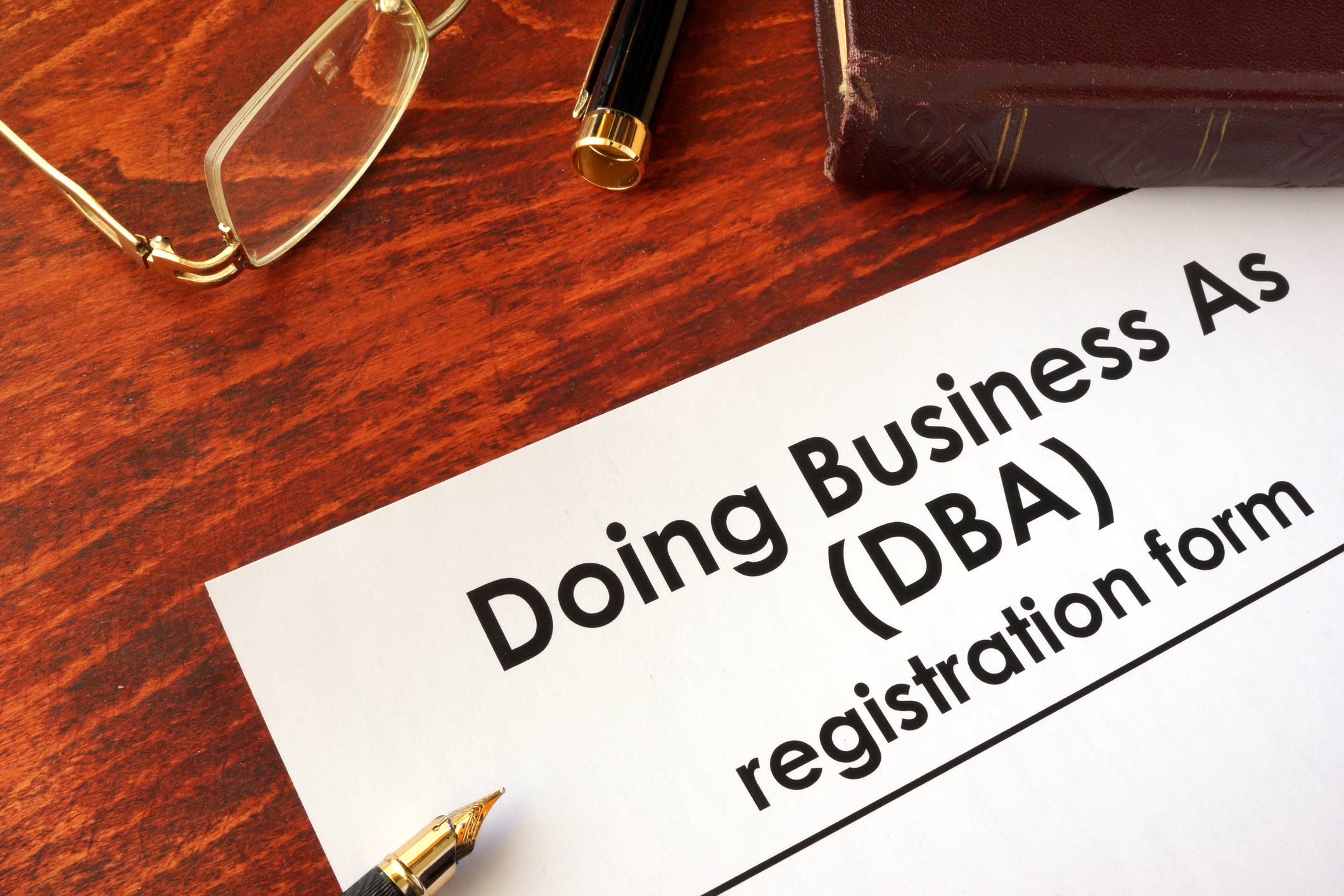In the progression of running your business, you’ve probably encountered more legal fine print and formalities than you ever thought possible.
What Is a DBA?
In the U.S., a DBA lets the public know who the actual owner of a corporation is. The DBA is also called a Fictitious Business Name or Assumed Business Name. It got its origin as a form of consumer protection so that dishonest business proprietors can’t try to avoid legal trouble by operating under a different name. When someone files a DBA, it’s generally circulated in some print newspaper. It lets the community know exactly who the people are behind a particular business.

Who Needs a DBA?
In general, there are two reasons why a business in the U.S. will need to get a DBA:
Sole Proprietor
If you are operating your business as a single proprietor, then you’ll need to file for a DBA if your business has a different name than your name. In some cases, you don’t need a DBA if your business name is a combination of your name and a description of your product or service.
For example, if a business was called David Jones Gardening Service, it may not need a DBA. But, if it’s just the first name (aka David’s Gardening Service), then a DBA is required. If that sounds confusing, don’t worry; get in touch with your local clerk’s office and ask them if you’ll need a DBA.

Corporation or LLC
If you have filed to become a corporation or LLC, then you’ve already registered your business name and don’t need a DBA. Although, you will need to get a DBA if you plan to conduct business using a name that’s different from the name filed with your LLC/corporation’s paperwork.
If we incorporated the business as Spring Flowers Gardening, the business would need to file a DBA to operate under “SpringFlowersGardening.com” or “Spring Flowers.” In short, you’ll need a DBA to operate with any variation of your original name.
The Importance of a DBA
A DBA might sound like a lot of unnecessary, extraneous paperwork. Yet, there are a few important reasons to get your DBA in order.
- It’s the easiest way to register your name. If you’re a sole proprietor, then filing for a DBA is going to be the simplest and least expensive way to use a business name. You can create a separate professional bookkeeping business identity without having to form an LLC or corporation. And, for sole proprietors, a DBA is required to open a bank account and receive payments in the name of your business.
- 2. For LLCs or corporations, a DBA will let you operate multiple businesses without having to form a separate LLC or corporation for each business. Let’s say your business wants to expand into multiple websites, stores, restaurants, services, etc. You can create a corporation with a comparatively generic name and use a DBA for each business. Incorporation will cut down on your paperwork and expenses when you’re operating multiple projects.

- Keeps your business compliant. If your business is an LLC or corporation, you enjoy certain legal protections. But, these protections may be invalidated if you’re operating under a different name and didn’t file for a DBA.
Filing a DBA
The rules, requirements, forms, and fees associated with filing a DBA differ in each state and county. The U.S. SBA provides a chart that details DBA filings state-by-state. By using a legal bookkeeping document filing service, you can ensure that you’re following your county and state requirements perfectly and won’t be unintentionally operating outside of the law.
Conclusion
Filing a DBA name isn’t hard; you need to work under your state or county’s requirements to go about it in the right way. It’s usually best to get this all done before you operate under your intended “doing business as” name, somewhere between 30 and 60 days before opening your doors.
 About Complete Controller® – America’s Bookkeeping Experts Complete Controller is the Nation’s Leader in virtual bookkeeping, providing service to businesses and households alike. Utilizing Complete Controller’s technology, clients gain access to a cloud-hosted desktop where their entire team and tax accountant may access the QuickBooks™️ file, critical financial documents, and back-office tools in an efficient and secure environment. Complete Controller’s team of certified US-based accounting professionals provide bookkeeping, record storage, performance reporting, and controller services including training, cash-flow management, budgeting and forecasting, process and controls advisement, and bill-pay. With flat-rate service plans, Complete Controller is the most cost-effective expert accounting solution for business, family-office, trusts, and households of any size or complexity.
About Complete Controller® – America’s Bookkeeping Experts Complete Controller is the Nation’s Leader in virtual bookkeeping, providing service to businesses and households alike. Utilizing Complete Controller’s technology, clients gain access to a cloud-hosted desktop where their entire team and tax accountant may access the QuickBooks™️ file, critical financial documents, and back-office tools in an efficient and secure environment. Complete Controller’s team of certified US-based accounting professionals provide bookkeeping, record storage, performance reporting, and controller services including training, cash-flow management, budgeting and forecasting, process and controls advisement, and bill-pay. With flat-rate service plans, Complete Controller is the most cost-effective expert accounting solution for business, family-office, trusts, and households of any size or complexity.




